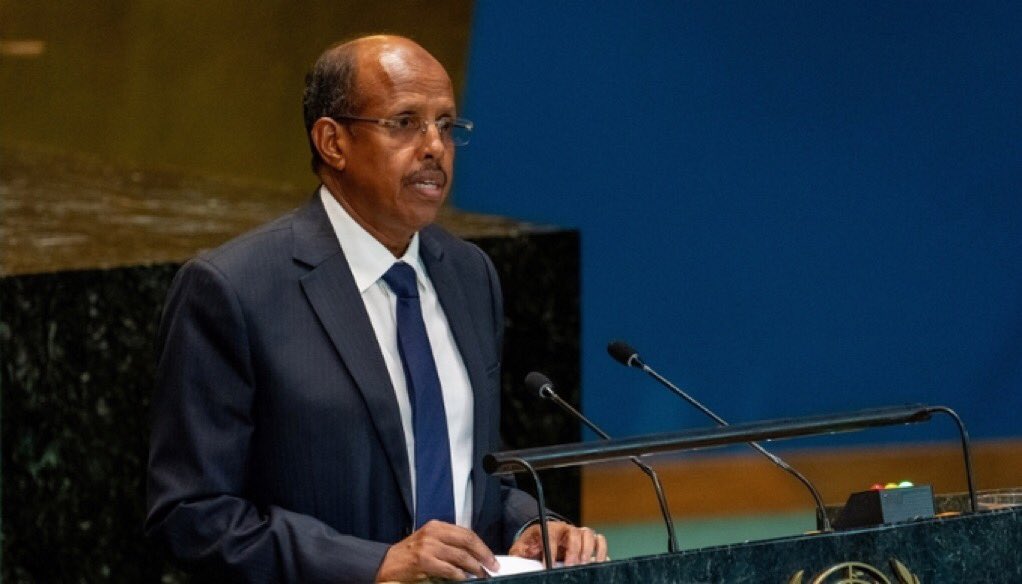
 New African Union Commission Chairperson Mahamoud Ali Youssouf. /FILE
New African Union Commission Chairperson Mahamoud Ali Youssouf. /FILEEven before African Union Chairperson election was held on Saturday, Djibouti’s Foreign Affairs Minister Mahamoud Ali Youssouf was the man to beat in the eyes of Kenyans.
Yousssouf, deemed an outside shot against veteran Raila, handed Kenya a blow after he clinched the AUC chair seat in a hotly contested election held in Addis Ababa, Ethiopia.
Youssouf is fluent in French, Arabic and English.
French is widely spoken in many countries in Africa and is also a key language in international diplomacy, organizations, and forums.
This ability was seen as a key campaign tool that gave him an edge over his competitors and is believed to have played a role in his victory on Saturday.
Youssouf got the required 33 votes to clinch the seat in the 7th round which he contested alone after Raila was dropped in the sixth round.
The former Prime Minister had trailed him in the third, fourth, fifth and sixth rounds leading to his elimination in line with the AUC rules.
Who is Youssouf?
Until his election as the AUC chair, Youssouf had served in the government of Djibouti as Minister of Foreign Affairs for two decades.
He was appointed to the role in 2005.
He is an alumnus of the University of Liverpool where he studied business management in 1988.
He has a Master's degree in management from the University of Laval, Canada which he obtained in 1990.
He also pursued several training programmes including an Education Training in Public Management from the National School of Public Management, Canada (1995).
Yousssouf pursued The Oxford Examination in English as Foreign Language from Oxford University, Oxford in 1989.
He has a Certificate of Translation in English/France from Liverpool Business School, UK –which he obtained 1988.
He also has a proficiency Certificate in Arabic from Bourguiba Institute of Modern Languages, Tunis which he obtained in 19988.
His Diplomatic journey began in the 1990s when he worked at Djibouti's Ministry of Foreign Affairs and headed its Arab affairs department. He was later appointed Ambassador to Egypt in 1997, a role he served until 2001.
Youssouf was appointed as Minister-Delegate for International Cooperation on July 4, 2001, a role he served until he was appointed minister in 2005.
In 2008, Youssouf served as Chairman of the 129th Ordinary Session of the Council of Foreign Ministers of the Arab League.
His vision for Africa
During the AUC chair candidates debate dubbed 'Mjadala Afrika' on December 13, 2024, Youssouf highlighted his plans for Africa if elected.
He said African countries have to play a leading role in ensuring there is peace and security on the continent.
While elaborating how he will ensure there is peace on the continent, Youssouf said African countries should stop depending on other nations for help.
He said lack of political will is one of the reasons peace in Africa has been elusive.
“We have to be outspoken and frank. We make decisions at the peace and Security Council level but these resolutions are not implemented,” he explained.
He further lamented that the Peace and Security Council is not proactive.
“Peace and Security Council is not proactive. It reacts to crises and when they occur and happen. This has to change. I'm sending a message to members; this has to change,” Youssouf added.
Youssouf noted that AU has standby forces, which are never mobilised because of lack of resources.
“We have them on paper and sometimes we can mobilise them but they lack resources. We are still relying on foreign partnerships. I will give you an example, Amisom, since 2007 has been financed by the EU and UN,” he stated.
“Financial resources are critical. Without money we cannot deploy resources. Even the committee of mediators cannot go and discuss with stakeholders.”
Youssouf added that there are many bottlenecks but lack of funds was a major setback to the security council's expected successes.













